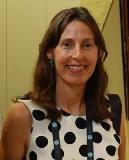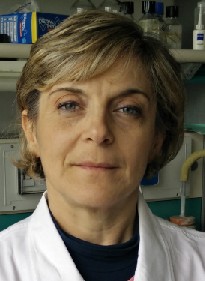Studiare
In questa sezione è possibile reperire le informazioni riguardanti l'organizzazione pratica del corso, lo svolgimento delle attività didattiche, le opportunità formative e i contatti utili durante tutto il percorso di studi, fino al conseguimento del titolo finale.
Calendario accademico
Il calendario accademico riporta le scadenze, gli adempimenti e i periodi rilevanti per la componente studentesca, personale docente e personale dell'Università. Sono inoltre indicate le festività e le chiusure ufficiali dell'Ateneo.
L’anno accademico inizia il 1° ottobre e termina il 30 settembre dell'anno successivo.
Calendario didattico
Il calendario didattico indica i periodi di svolgimento delle attività formative, di sessioni d'esami, di laurea e di chiusura per le festività.
| Periodo | Dal | Al |
|---|---|---|
| I semestre | 1-ott-2019 | 31-gen-2020 |
| II semestre | 2-mar-2020 | 12-giu-2020 |
| Sessione | Dal | Al |
|---|---|---|
| Sessione invernale d'esame | 3-feb-2020 | 28-feb-2020 |
| Sessione estiva d'esame | 15-giu-2020 | 31-lug-2020 |
| Sessione autunnale d'esame | 1-set-2020 | 30-set-2020 |
| Sessione | Dal | Al |
|---|---|---|
| Sessione estiva di laurea LM9 | 14-lug-2020 | 14-lug-2020 |
| Sessione autunnale di laurea LM9 | 9-ott-2020 | 9-ott-2020 |
| Sessione invernale di laurea LM9 | 12-mar-2021 | 12-mar-2021 |
| Periodo | Dal | Al |
|---|---|---|
| Festa di Ognissanti | 1-nov-2019 | 1-nov-2019 |
| Festa dell'Immacolata | 8-dic-2019 | 8-dic-2019 |
| Vacanze di Natale | 23-dic-2019 | 6-gen-2020 |
| Vacanze di Pasqua | 10-apr-2020 | 14-apr-2020 |
| Festa della Liberazione | 25-apr-2020 | 25-apr-2020 |
| Festa del lavoro | 1-mag-2020 | 1-mag-2020 |
| Festa del Santo Patrono | 21-mag-2020 | 21-mag-2020 |
| Festa della Repubblica | 2-giu-2020 | 2-giu-2020 |
| vacanze estive | 10-ago-2020 | 23-ago-2020 |
Calendario esami
Gli appelli d'esame sono gestiti dalla Unità Operativa Segreteria Corsi di Studio Scienze e Ingegneria.
Per consultazione e iscrizione agli appelli d'esame visita il sistema ESSE3.
Per problemi inerenti allo smarrimento della password di accesso ai servizi on-line si prega di rivolgersi al supporto informatico della Scuola o al servizio recupero credenziali
Per dubbi o domande leggi le risposte alle domande più frequenti F.A.Q. Iscrizione Esami
Docenti
 maurizio.boscaini@univr.it
maurizio.boscaini@univr.it
Piano Didattico
Il piano didattico è l'elenco degli insegnamenti e delle altre attività formative che devono essere sostenute nel corso della propria carriera universitaria.
Selezionare il piano didattico in base all'anno accademico di iscrizione.
1° Anno
| Insegnamenti | Crediti | TAF | SSD |
|---|
One course to be chosen among the followingOne course to be chosen among the followingTwo courses to be chosen among the followingThree courses to be chosen among the following2° Anno Attivato nell'A.A. 2020/2021
| Insegnamenti | Crediti | TAF | SSD |
|---|
| Insegnamenti | Crediti | TAF | SSD |
|---|
One course to be chosen among the followingOne course to be chosen among the followingTwo courses to be chosen among the followingThree courses to be chosen among the following| Insegnamenti | Crediti | TAF | SSD |
|---|
| Insegnamenti | Crediti | TAF | SSD |
|---|
Two courses to be chosen among the following ("Biotechnology in Neuroscience" and "Clinical proteomics" 1st and 2nd year; the other courses 2nd year only)Legenda | Tipo Attività Formativa (TAF)
TAF (Tipologia Attività Formativa) Tutti gli insegnamenti e le attività sono classificate in diversi tipi di attività formativa, indicati da una lettera.
Computational genomics (2019/2020)
Codice insegnamento
4S003667
Docente
Coordinatore
Crediti
6
Lingua di erogazione
Inglese
Settore Scientifico Disciplinare (SSD)
BIO/18 - GENETICA
Periodo
II semestre dal 2-mar-2020 al 12-giu-2020.
Obiettivi formativi
L’avvento delle nuove tecnologie di sequenziamento (Next Generation Sequencing, NGS) ha avuto un impatto enorme nella comprensione della complessità dei genomi da un punto di vista genomico, trascrittomico ed epigenetico, e ha fornito interessanti opportunità per lo sviluppo di risorse e programmi bioinformatici per l’analisi e la gestione dei dati. Il corso fornisce una panoramica generale dei metodi computazionali che fanno uso di dati NGS applicati nell’ambito della genomica , in particolare relativi alla genomica umana, come ad esempio l’allineamento di sequenze su un genoma di riferimento, il sequenziamento genomico, il risequenziamento e l’identificazione di varianti causative di malattie genetiche, l’analisi dei trascrittomi per l’identificazione dei geni differenzialmente espressi. Al termine dell’insegnamento lo studente dovrà essere in grado di: conoscere i principali formati elettronici con cui vengono salvati i dati genomici conoscere i differenti algoritmi utilizzati nell’ambito della genomica e le loro applicazioni Preparare e gestire una pipeline di lavoro per l’analisi dei dati
Programma
1. Introduzione ai dati di sequenziamento di nuova generazione (NGS)
a. Bias ed errori di sequenziamento della tecnologia illumin
b. Formato FastQ
c. Verifica della qualità delle sequenze
d. Preprocessamento delle sequenze
2. Panoramica dei metodi di assemblaggio dei genomi
a. Overlap-layout-consensus
b. Debrujin graph
c. Verifica qualitò assemblaggio
3. Allineamento dei dati NGS su un genoma di riferimento
a. Programmazione dinamica
b. Metodi euristici
c. Formato SAM/BAM
4. Risequenziamento e chiamata delle varianti
a. Identificazione di varianti germinali
b. Identificazione di varianti somatiche
c. Metodi bioinformatici per l’identificazione delle varianti strutturali
d. Formato file VCF e gVCF
5. Metodi computazionali per la prioritizzazione di geni candidati
6. Analisi di dati di trascrittomica e RNA-seq
a. Allineamento di sequenze di RNA-seq
b. Ricostruzione dei trascritti (genome-guided / denovo)
c. Quantificazione genica
d. Normalizzazione dei dati
e. Identificazione dei geni differenzialmente espressi
f. Analisi di arricchimento
8. Laboratorio di Bioinformatica
a. Introduzione alla bash ed al sistemaoperativo linux
b. Uso del programma FastQC
c. messa a punto di una pipiline per il preprocessing delle sequenze
d. allineamento delle sequenze con bowtie2
e. gestione dei file SAM/BAM
Modalità d'esame
L'esame consiste in una verifica scritta del livello di conoscenze acquisite relativo agli argomenti trattati nel corso. La verifica consiste in 6 domande aperte. Lo studente dovrà dimostrare di aver compreso il funzionamento e l'applicazione dei principali programmi e approcci bioinformatici spiegati a lezione.
Tipologia di Attività formativa D e F
| anni | Insegnamenti | TAF | Docente |
|---|---|---|---|
| 2° | Linguaggio programmazione Python | D |
Maurizio Boscaini
(Coordinatore)
|
Prospettive
Avvisi degli insegnamenti e del corso di studio
Per la comunità studentesca
Se sei già iscritta/o a un corso di studio, puoi consultare tutti gli avvisi relativi al tuo corso di studi nella tua area riservata MyUnivr.
In questo portale potrai visualizzare informazioni, risorse e servizi utili che riguardano la tua carriera universitaria (libretto online, gestione della carriera Esse3, corsi e-learning, email istituzionale, modulistica di segreteria, procedure amministrative, ecc.).
Entra in MyUnivr con le tue credenziali GIA: solo così potrai ricevere notifica di tutti gli avvisi dei tuoi docenti e della tua segreteria via mail e a breve anche tramite l'app Univr.
Prova Finale
Scadenziari e adempimenti amministrativi
Per gli scadenziari, gli adempimenti amministrativi e gli avvisi sulle sessioni di laurea, si rimanda al servizio Sessioni di laurea - Scienze e Ingegneria.
Necessità di attivare un tirocinio per tesi
Per stage finalizzati alla stesura della tesi di laurea, non è sempre necessaria l'attivazione di un tirocinio tramite l'Ufficio Stage. Per maggiori informazioni, consultare il documento dedicato, che si trova nella sezione "Documenti" del servizio dedicato agli stage e ai tirocini.
Regolamento della prova finale
La laurea magistrale si consegue con il superamento di una prova finale che consiste nella preparazione e nella discussione di un elaborato individuale redatto dallo studente in lingua inglese, nel quale il candidato metterà in evidenza le esperienze acquisite ed il lavoro di ricerca sperimentale svolto su una tematica specifica presso laboratori di ricerca universitari, oppure presso qualificate istituzioni o enti pubblici o privati del settore biotecnologico. L'elaborato sarà preparato dallo studente sotto la supervisione di un docente-tutore. Per essere ammessi alla prova finale lo studente deve aver conseguito tutti i crediti nelle attività formative previste dal piano di studi ad eccezione di quelli riservati alla prova finale stessa. La commissione preposta alla prova finale esprime una valutazione riferita all'intero percorso di studi tenendo conto della coerenza tra obbiettivi formativi e obbiettivi professionali, la capacità di elaborazione intellettuale e di comunicazione e la maturità culturale del candidato.
Alla prova finale sono dedicati 40 CFU. La tesi potrà essere discussa sia in lingua inglese che in lingua italiana
.Ogni Tesi può essere svolta presso l’Università di Verona o in collaborazione con altro ente. Ogni Tesi di Laurea prevede un Relatore, eventualmente affiancato da uno o più Correlatori, e due Controrelatori. Nel loro insieme essi costituiscono la Commissione di Valutazione. La Commissione di Valutazione è costituita da un Relatore e due Controrelatori.
Può rivestire il ruolo di Relatore ogni docente afferente ai Dipartimenti della Scuola di Scienze e Ingegneria o della Scuola di Medicina e Chirurgia dell’Ateneo. Possono svolgere il ruolo di Correlatori i ricercatori operanti in Istituti di ricerca extrauniversitari, assegnisti di ricerca, titolari di borsa di studio post-dottorato, dottorandi di ricerca. I Controrelatori devono essere docenti appartenenti alla Scuola di Scienze e Ingegneria o alla Scuola di Medicina e Chirurgia dell’Ateneo. Sono nominati dalla Commissione Didattica almeno 25 giorni prima della discussione della tesi di laurea, verificata l’ammissibilità dello studente a sostenere la prova finale.
I lavori della Commissione di Valutazione non sono regolati da convocazioni ufficiali e hanno luogo su accordo tra i soggetti interessati entro i 15 giorni precedenti la seduta di Laurea, nella quale si procederà alla sola proclamazione. Alla fine della presentazione, la Commissione di Valutazione stilerà una breve nota dı̀ valutazione con espressione di un voto sintetico (da 0 a 8). Questa nota sarà trasferita alla Segreteria di Corso di Laurea, entro il giorno precedente la seduta di laurea, per la successiva formulazione del voto definitivo da parte della Commissione di Laurea che procederà alla proclamazione.
Valutazione delle Tesi
Per ogni presentazione sono a disposizione circa 30 minuti più la discussione. I criteri su cui è chiamata ad esprimersi la Commissione di Valutazione sono i seguenti:
- livello di approfondimento del lavoro svolto, in relazione allo stato dell’arte dei settori disciplinari di pertinenza alle Biotecnologie Molecolari e Mediche;
- avanzamento conoscitivo e/o tecnologico apportato dalla Tesi;
- impegno critico espresso dal laureando;
- impegno sperimentale espresso dal laureando;
- autonomia di lavoro espressa dal laureando;
- significatività delle metodologie impiegate;
- accuratezza nell’impostazione e nella stesura della tesi;
- chiarezza espositiva.
I Controrelatori non sono chiamati ad esprimersi sul punto 5.
Voto di Laurea
Il voto di Laurea (espresso in 110mi) è un valore intero compreso tra 66/110 e 110/110 e viene formato dalla somma, arrotondata al numero intero più vicino (e.g., 93.50 diventa 94, 86.49 diventa 86), dei seguenti addendi:
- media pesata sui crediti e rapportata a 110 dei voti conseguiti negli esami di profitto;
- valutazione del colloquio di Laurea e della Tesi secondo le seguenti modalità:
- a) Al colloquio di Laurea e alla Tesi sono attribuiti al massimo 11 punti. Essi saranno così distribuiti: 8 punti alla Commissione di Valutazione che valuterà il colloquio di Laurea e la Tesi secondo le seguenti modalità: attribuzione di un coefficiente compreso tra 0 e 1 (frazionario con una cifra decimale) per ciascuno dei punti 1-8 elencati sopra;
- b) 3 punti alla Commissione di Laurea che si esprime in modo assembleare. La commissione di Laurea attribuirà i punti in base alla valutazione del curriculum del laureando. In particolare: la presenza di eventuali lodi ottenute negli esami sostenuti, la partecipazione a stage ufficialmente riconosciuti dall’Ateneo, il superamento di esami in soprannumero ed il raggiungimento della Laurea in tempi contenuti rispetto alla durata normale del corso degli studi possono essere utilizzati dalla Commissione per l’attribuzione del punteggio. Al candidato che ottiene meno di 11 punti per la tesi verranno attribuiti 2 punti in più nel caso in cui (a) abbia acquisito il riconoscimento in carriera di almeno 12 CFU conseguiti in mobilità internazionale, e (b) consegua il titolo finale entro la durata normale del Corso di Studi.
- c) somma del punteggio derivante da a) e b).
Qualora la somma finale raggiunga 110/110, la Commissione di Laurea può decidere l’attribuzione della lode. Nel caso della proposta di laurea con lode lo studente deve avere:
- una media ponderata minima di 104/110 (senza arrotondamenti) oppure
- una media ponderata minima di 102/110 (senza arrotondamenti) e aver conseguito almeno n. 3 lodi. In base alle norme vigenti, la lode viene attribuita solo se il parere è unanime.
Tesi esterne
Una Tesi esterna viene svolta in collaborazione con un ente diverso dall’Università di Verona. In tal caso, il laureando dovrà preventivamente concordare il tema della Tesi con un relatore del Corso di laurea LM9. E’ previsto almeno un correlatore appartenente all’ente esterno, quale riferimento immediato per lo studente nel corso dello svolgimento dell’attività di Tesi. Relatore e Correlatori devono essere indicati nella domanda di assegnazione Tesi. I risultati contenuti nella Tesi sono patrimonio in comunione di tutte le persone ed Enti coinvolti. In particolare, i contenuti ed i risultati della Tesi sono da considerarsi pubblici.
Elenco delle proposte di tesi e stage
| Proposte di tesi | Area di ricerca |
|---|---|
| Studio delle proprietà di luminescenza di lantanidi in matrici proteiche | Synthetic Chemistry and Materials: Materials synthesis, structure-properties relations, functional and advanced materials, molecular architecture, organic chemistry - Colloid chemistry |
Modalità di frequenza
Come riportato nel Regolamento Didattico, non è previsto un obbligo generalizzato di frequenza. I singoli docenti sono tuttavia liberi di richiedere un minimo di ore di frequenza per l’ammissibilità̀ all’esame di profitto dell’insegnamento di cui sono titolari. In tal caso il controllo della frequenza alle attività didattiche è stabilito secondo modalità preventivamente comunicate agli studenti.

 +39 045 802 7949
+39 045 802 7949




























